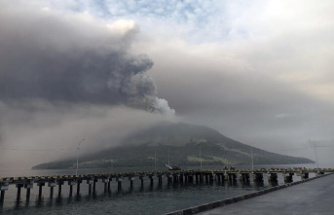Anxiety at the pump. For millions of French motorists, going to the service station has become an object of concern and frustration in recent months. The price of road fuels, in the wake of the continuous increase in oil prices that began in 2021, is part of a formidable inflationary spiral. Even more than gasoline, diesel is today close to peaks. On April 22, the liter traded at 1.88 euro, an increase of more than 50 cents over one year against 1.80 euro (43 cents) for the liter of unleaded 95. These few cents of differences certainly do not weigh not much on the cost of a full tank, especially since the diesel engine has better yields. Still, the crossing of the curves is a strong symbol, in a country which since the 1970s and the oil shock has massively supported the deployment of diesel vehicles for its lower CO2 impact as well as the competitiveness of French manufacturers in the field. All this, thanks to more attractive taxation which has made France the European champion of this fuel.
Even today, diesel vehicles account for nearly 57% of the vehicle fleet. "The diesel vehicle is the symbol of the France of the regions, of peri-urban France, of France that rolls", judge Pierre Chasseray, general delegate of the very media-friendly association 40 million motorists. Alas, the fuel is hardly more dream lately. Started under François Hollande but accelerated by Emmanuel Macron, the gradual alignment of taxation between the two fuels makes diesel much less attractive. Its decline has largely begun on the new market, where it weighed only 21% of new registrations in 2021, according to data from analyst AAA Data, against 52% in 2016.
The trap of purchasing power could close a little more in the coming weeks, as France and Europe seek to completely do without Russian oil. Admittedly, the Kremlin does not weigh heavily in the country's crude oil supplies (9% of the total). On the other hand, when it comes to diesel, the equation is completely different, as Patrick Pouyanné reminded us a few weeks ago on RTL. "France today imports about 30% of its diesel from Russia [...] We must therefore find substitutes", advanced the CEO of TotalEnergies. Nothing insurmountable, underlines Olivier Gantois, president of UFIP energies and mobility. "We can substitute this diesel with that of North America or the Middle East, which are both very surplus. On the other hand, the substitute product is more expensive." According to him, the markets have already partly integrated this reality. "On the quotations of Rotterdam, we observe from mid-March a drop in the price of diesel compared to other fuels. The markets are nervous."
To make matters worse, this increase in diesel comes to hit drivers whose purchasing power is on average lower than that of other motorists. In the midst of the yellow vests crisis in 2018, the magazine L'Argus had compared the percentage of vehicles running on diesel in the fleet of private vehicles, with the rate of non-taxable households on a departmental scale. And he had come to the conclusion that diesel had become "an outward sign of poverty". To avoid a new conflagration, the executive has multiplied the gestures – check for 100 euros in the fall, discount of 15 cents per liter since April 1.
Pierre Chasseray, of the association 40 million motorists, nevertheless judges that the pressure cooker is not far from overflowing. For him, the ferments of a mobilization type yellow vests are there. "We are reaching intolerable price levels, you have to be crazy to imagine that the French are not going to wake up." Especially since the rise in power in French cities of low emission zones (ZFE), which aim to exclude old and more polluting vehicles from circulation, is starting to annoy. This should de facto affect the most precarious households and particularly diesel drivers, still in the majority and whose models are on average older.
A recent study carried out by the CSA for the association Eco Entretien estimated that one out of two motorists affected by ZFEs will not be able to change vehicles due to a lack of means. Its general delegate Etienne Diot pointing to the "social risk that could arise from the brutal establishment of ZFEs on the territory by suddenly excluding large cities, millions of motorists who do not have a euro available to change cars". Between the need to preserve the purchasing power of the French and that of decarbonizing and therefore electrifying the car fleet... The future government will have to play a funny balancing act.












